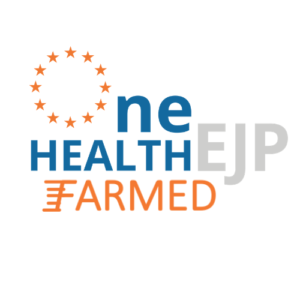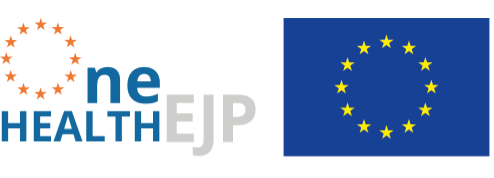Teramo, Abruzzo, Italy
Houtribweg 39, Lelystad, Flevoland, The Netherlands
Avenida Puerta de Hierro, Madrid, Comunidad de Madrid, Spain
Artillerivej 5, Copenhagen, Region Hovedstaden, Denmark
Rue Juliette Wytsman - Juliette Wytsmanstraat 14, Ixelles - Elsene, Région de Bruxelles-Capitale - Brussels Hoofdstedelijk Gewest, Belgium
Viale Regina Elena, Rome, Lazio, Italy
Anker Engelunds Vej 1, Stampen, Region Hovedstaden, Denmark
Max-Dohrn-Straße 8, Berlin, Berlin, Germany
Addlestone, England, United Kingdom

The Project #FARMED
| Start: | 1 January 2020 |
| Duration: | 2.5 Years |
| Domain: | Antimicrobial Resistance |
| Keywords: | metagenomics, pathogen detection, mobile genetic elements |
| Contact: | Manal AbuOun (APHA) |
FARMED: Fast Antimicrobial Resistance and Mobile-Element Detection using metagenomics for animal and human on-site tests
Antimicrobial resistance (AMR) threatens some of the greatest medical advances in modern times. Current AMR and pathogen detection is primarily reliant on classical culturing techniques, which may be slow. The development of new tools for real-time detection of resistant pathogens is a priority topic of the One Health EJP. On-site and real-time analysis requires independence from culturing techniques to facilitate rapid interventions, especially during outbreaks. Furthermore, it requires robust protocols using minimal technical equipment that can be used outside of the normal laboratory environment. Metagenomic sequencing using short-read data can detect the composition of microbial communities for the assessment of potential pathogens and AMR or virulence genes, which could become an invaluable diagnostic tool. However, short-read technologies cannot reliably associate individual genes in a community to specific organisms and is a potential limitation for detecting AMR in pathogens.
The aims of the FARMED project were to address these issues by using the ONT MinION, comparing this technology to other metagenomic sequencing technologies, and assessing its ability for diagnostic use on a range of sample matrices within both the laboratory and the field. Using long-read metagenomic sequencing, the local genetic context of AMR genes can be derived, and as such, the presence of the AMR genes can be attributed to specific species and plasmids, within the bacterial community. This technology enabled the identification of a plethora of bacterial species and linkage of particular species to a range of AMR genes. FARMED project created harmonised protocols for on-site metagenomic DNA extraction and sequencing library preparation on the MinION. FARMED project also developed efficient mapping strategies that can identify the origin of the genetic context of AMR genes, identify the host bacterial species to enable specific pathogen detection.
In addition to on-site metagenome analysis, FARMED investigated and established best practice for ‘off-site’ analysis of plasmids sequences by comparing with purified isolates. This was done by comparing the use of long-read and short-read data, as well as a combination of the technologies, such as Hi-C, to assemble complete plasmids from metagenomics data. Hi-C sequencing is a novel method that uses proximity ligation of DNA molecules to determine the genetic context of AMR genes in relation to linkage to the bacterial host chromosome. Defined communities, containing isolates harbouring known plasmids, were used to determine whether plasmid sequences can be derived from these metagenomic data.
Project Outputs and Outcomes
The key aims of the project were met through the following:
- The feasibility of long-read metagenomics for pathogen and AMR detection was demonstrated for simple and complex matrices, covering the spectrum of the One Health context. However, the abundance of the species has a large impact on the success of detection.
- KMA, combined with Resfinder, were selected as the preferred bioinformatics tools to analyse the sequencing data, and defining the characteristics within the sample. A suggested list of parameters, aiming to aid users in considering the confidence of presence of bacterial species within sample was developed. The applied database is a crucial factor in the analysis.
- Different approaches were taken by institutes to enable on-site long-read metagenomics, where limitations were identified as well as successes.
FARMED project has successfully tested and shown that long-read metagenomics using the Oxford Nanopore technology MinION system for pathogen and AMR detection is feasible. However, the project quickly identified several caveats that would currently limit the usability of this technology for on-site surveillance or monitoring, such as those performed across the EU (e.g. yearly AMR monitoring), as described in the project reports.
The methodologies and tools developed from FARMED are highly applicable to a wide range of users beyond the consortium, to rapidly monitor AMR present in pathogens in many different environments. These project outputs will be especially useful in low or middle-income countries where the burden of pathogen occurrence and AMR may be high but there is limited access to specialist or even ‘standard’ laboratory equipment for diagnosis.
Project Assets
Gand, M., Bloemen, B., Vanneste, K., Roosens, N.H.C., & De Keersmaecker, S.C.J. (2023). Comparison of 6 DNA extraction methods for isolation of high yield of high molecular weight DNA suitable for shotgun metagenomics Nanopore sequencing to detect bacteria. BMC Genomics. 24, 438. DOI: https://doi.org/10.1186/s12864-023-09537-5
D’aes, J., Fraiture, M-A., Bogaerts, B., De Keersmaecker, S. C. J., Roosens, N. H. C. J., Vanneste, K. (2022). Metagenomic Characterization of Multiple Genetically Modified Bacillus Contaminations in Commercial Microbial Fermentation Products. Life. 12(12),1971. DOI: https://doi.org/10.3390/life12121971
Buytaers, F E., Fraiture, M-A., Berbers, B., Vandermassen, E., Hoffman, S., Papazova, N., Vanneste, K., Marchal, K., Roosens, N H C., De Keersmaecker, S C J. (2021). A shotgun metagenomics approach to detect and characterise unauthorised genetically modified microorganisms in microbial fermentation products. Food Chemistry: Molecular Sciences. 2, 100023. DOI: https://doi.org/10.1016/j.fochms.2021.100023



